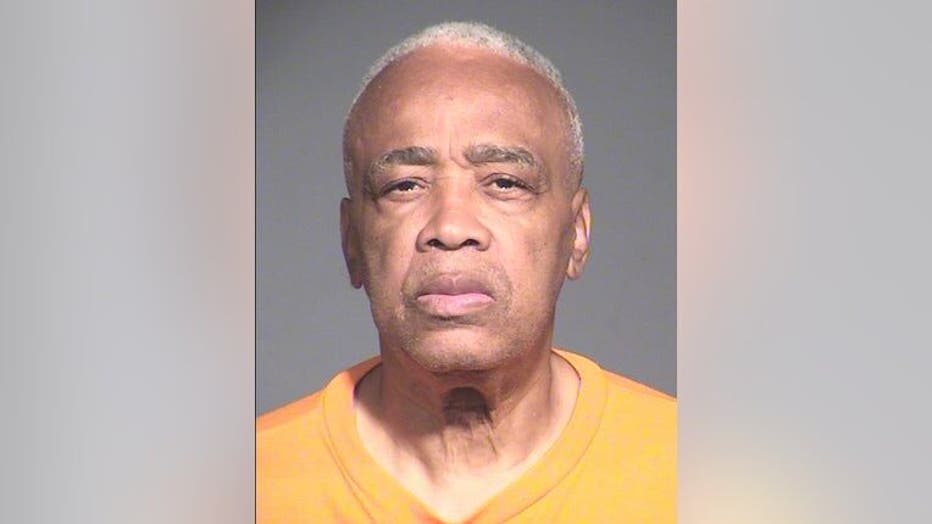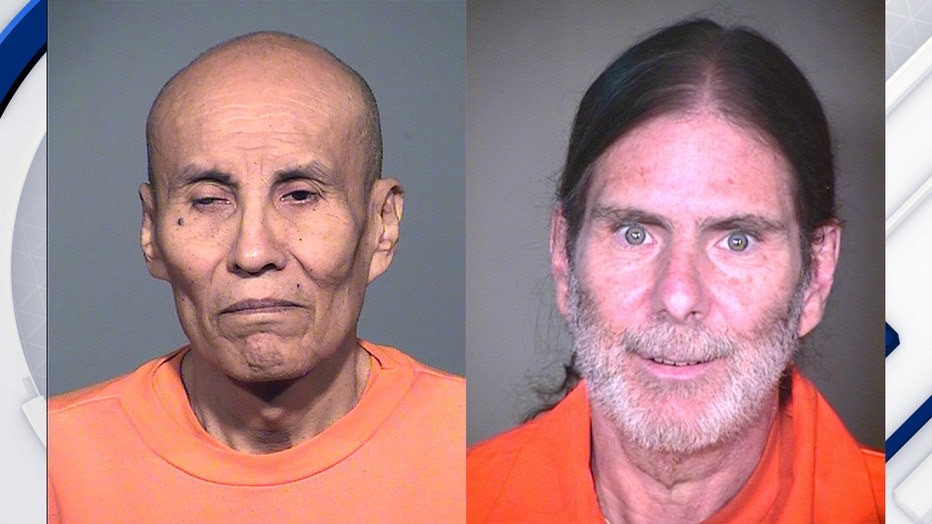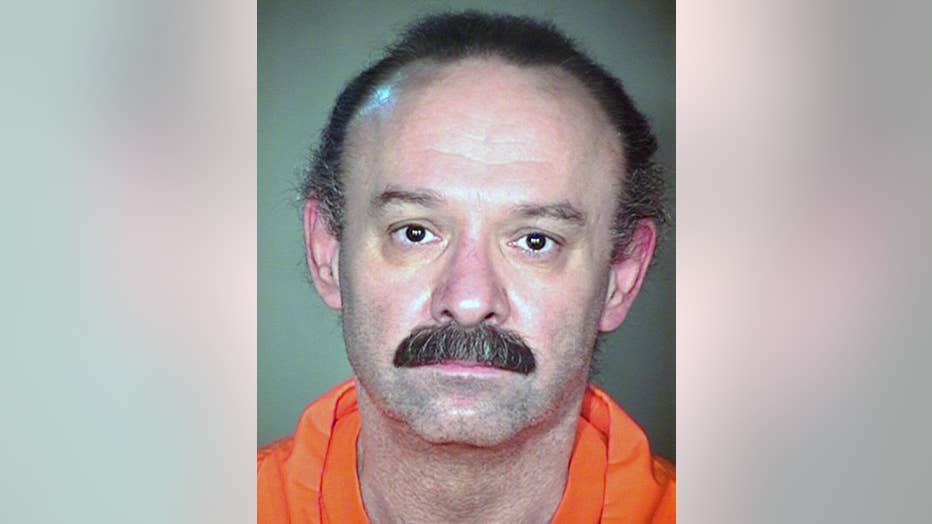Murray Hooper: Arizona could soon execute a 3rd death row inmate
PHOENIX - Arizona Attorney General Mark Brnovich said his office filed a motion with the state Supreme Court on Aug. 26 for a warrant of execution for death-row inmate Murray Hooper.
The Arizona Supreme Court previously said that a warrant of execution for Hooper could be issued in two months.
A briefing schedule issued by the state’s high court shows the state’s motion for an execution warrant must be filed by the end of the week. Hooper’s lawyers will then be able to respond.
If the motion is granted when the court considers it on Oct. 12, Chief Justice Robert Brutinel’s order says the court anticipates the warrant will be issued that day.
Here's what you should know about the man who could become Arizona's 3rd death row inmate to be put to death since the state resumed carrying out executions.
Who is Murray Hooper?
76-year-old Hooper, along with two co-defendants, were sentenced to death for the New Year’s Eve 1980 murders of a Phoenix man and his mother-in-law during a home robbery.
According to the Arizona Department of Corrections, Rehabilitation and Reentry's death row website, Hooper, along with William Bracy and former Phoenix Police officer Edward McCall, went to the home of Patrick Redmond. At the time, Redmond, his wife, and his mother-in-law Helen Phelps, were at home preparing for a New Year's Eve party.
"Bracy, Hooper, and McCall entered the house at gunpoint and forced the Redmonds and Mrs. Phelps into the master bedroom. After taking jewelry and money, the intruders bound and gagged the victims. They then shot each victim in the head and also slashed Mr. Redmond's throat," read a portion of the website.
According to officials, Redmond and his mother-in-law died from their wounds, but Redmond's wife survived, and later identified all three people involved in the crime.
Hooper, according to officials, was sentenced to death in February 1983.

Murray Hooper (Arizona Department of Correction, Rehabilitation and Reentry)
What about Bracy and McCall? What happened to them?
Bracy, according to officials, was found guilty alongside Hooper, in a joint trial. McCall, meanwhile, was tried alongside another man named Robert Cruz, who was alleged to have hired the killers.
According to ADCRR's website, Cruz won a new trial on appeal but was convicted again. He later won another new trial on appeal and was found not guilty.
Both Bracy and McCall died before their death sentences could be carried out, according to a statement released by the Arizona Attorney General's Office in July 2022.
Who were the last two people to be executed by Arizona?

Clarence Dixon (left) and Frank Atwood (right)
The first death row inmate to be executed in Arizona since 2014 was Clarence Dixon, who was sentenced to death for sexually assaulting and killing a 21-year-old Arizona State University student in 1978.
The death row inmate executed after Dixon was Frank Atwood, who was sentenced to death for killing a girl in 1984.
Read More: Frank Atwood: Arizona executes death-row inmate who killed girl in 1984
(Related Video) Witness to execution: FOX 10's Troy Hayden talks about Dixon's execution process
FOX 10 AZAM anchor Troy Hayden was chosen to be a media witness to Clarence Dixon's execution, and due to new rules, there were some parts of the execution that were seen and heard by witnesses for the first time. He spoke with John Hook and Christina Carilla about his observations on how the updated execution drug worked.
(Related Video) Frank Atwood: Arizona executes man convicted of killing girl in 1984
Frank Atwood, 66, died by lethal injection at the state prison in Florence for his murder conviction in the killing of Vicki Lynne Hoskinson, whose body was found in the desert. FOX 10's Nicole Garcia reports.
Why didn't the state execute people from 2014 to this year?

Joseph Wood (Courtesy: Arizona Department of Corrections)
The state hadn’t executed anyone for nearly eight years before Dixon because of what happened with the execution of Joseph Wood.
According to ADCRR's website, Wood shot and killed a 55-year-old man and his 29-year-old ex-girlfriend in 1989.
Wood's lawyers claim his execution was botched. FOX 10's Troy Hayden, who witnessed Wood's execution, said Wood moved on the table and appeared to gulp for air for almost two hours.
In the years since Woods' execution, it was reported that states have found it increasingly difficult to secure lethal injection drugs.
Due to protests and lawsuits, the companies that made reliable death penalty drugs stopped selling them to prisons, which forced states to rely on drugs that weren’t as proven with sometimes uneven results.
A 2017 settlement over Arizona’s death penalty protocol said the state will only use chemicals in an execution with an expiration date that is after the date of the scheduled execution. While seeking the executions of Dixon and another death row inmate named Frank Atwood, prosecutors had said the shelf life of the drug to be used was 45 days, which was half as long as they previously thought.
In a document we obtained, it shows that in late 2020, the Arizona Department of Corrections paid $1.5 million for about 100 doses of precursors of the most reliable death penalty drug, Pentobarbital, the same drug many veterinarians use to put pets to sleep.
Earlier in the year, the state resumed its efforts to move forward with their executions and said it had done specialized testing and determined the shelf life of the drug to be at least 90 days.
In March 2021, officials with the ADCRR say they are ready to start executions again.
How many people are on Arizona's death row?
According to figures from ADCRR's website, 111 prisoners are on Arizona's death row. That figure includes Hooper.
Of those on death row, an overwhelming majority of them (108) are men, with only three women: Wendi Andriano, Shawna Forde, and Sammantha Uriarte.
Read More: Only 3 women are on Arizona’s death row: Who are they and what were they sentenced to death for?
The Associated Press (AP) contributed to this report.

